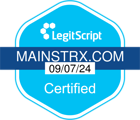Pain is a complex and often debilitating experience that can significantly impact one’s quality of life. While there are various approaches to pain management, medication plays a crucial role in alleviating symptoms and improving daily functioning for many individuals. However, navigating the realm of pain medications can be overwhelming and fraught with potential risks and challenges. In this comprehensive guide, we’ll explore the principles of medication management for pain and empower you to make informed decisions in collaboration with your healthcare provider.
Principles of Medication Management for Pain
- Understanding Pain Medications: Pain medications fall into several categories, including over-the-counter (OTC) analgesics like acetaminophen and nonsteroidal anti-inflammatory drugs (NSAIDs), prescription opioids, antidepressants, anticonvulsants, muscle relaxants, and topical agents. Each type of medication works differently to target various aspects of pain, such as inflammation, nerve sensitivity, or muscle spasms.
- Consulting with Healthcare Professionals: Before starting any pain medication regimen, it’s essential to consult with a healthcare professional, such as a primary care physician, pain specialist, or pharmacist. They can assess your medical history, conduct a thorough evaluation of your pain condition, and recommend the most appropriate treatment options based on your individual needs and preferences.
- Personalized Treatment Plans: Pain management is not one-size-fits-all, and a personalized treatment plan tailored to your specific symptoms, underlying conditions, and lifestyle factors is crucial for optimal outcomes. Your healthcare provider may recommend a combination of medications, physical therapy, lifestyle modifications, and alternative therapies to address your pain comprehensively.
- Setting Realistic Expectations: It’s essential to set realistic expectations regarding pain relief and treatment outcomes. While medications can provide significant relief for many individuals, they may not completely eliminate pain or cure underlying conditions. Managing expectations and focusing on improving functionality and quality of life can help mitigate disappointment and frustration.
- Safe Use of Opioid Medications: Opioid medications are potent analgesics commonly prescribed for moderate to severe pain, but they come with a high risk of dependence, addiction, and overdose. If your healthcare provider prescribes opioids, it’s crucial to use them cautiously, adhere to prescribed dosages, and communicate openly about any concerns or side effects.
- Minimizing Risks and Side Effects: All medications carry potential risks and side effects, ranging from mild discomfort to serious complications. It’s essential to familiarize yourself with the potential side effects of your prescribed medications and promptly report any adverse reactions to your healthcare provider. Additionally, following medication guidelines, avoiding alcohol and other contraindicated substances, and monitoring for drug interactions can help minimize risks.
- Regular Monitoring and Follow-Up: Pain management is an ongoing process that requires regular monitoring and adjustments to treatment plans as needed. Stay in close communication with your healthcare provider, attend scheduled follow-up appointments, and be proactive in reporting changes in pain symptoms or medication effectiveness.
- Exploring Alternative Therapies: While medication is a cornerstone of pain management, it’s not the only option. Consider incorporating alternative therapies such as acupuncture, massage therapy, cognitive-behavioral therapy (CBT), or relaxation techniques into your treatment plan to complement conventional medications and enhance overall well-being.
- Patient Education and Empowerment: Knowledge is empowering when it comes to medication management for pain. Take the time to educate yourself about your prescribed medications, including their mechanisms of action, potential side effects, and proper usage. Ask questions, advocate for your needs, and actively participate in shared decision-making with your healthcare team.
- Holistic Approach to Pain Management: Finally, embrace a holistic approach to pain management that encompasses physical, emotional, and psychological aspects of well-being. Incorporate self-care practices, stress management techniques, and healthy lifestyle choices into your daily routine to support overall resilience and enhance the effectiveness of medication-based interventions.
In conclusion, medication management is a critical component of comprehensive pain management strategies. By working closely with your healthcare provider, staying informed, and adopting a proactive and holistic approach, you can navigate the complexities of pain medication safely and effectively, reclaiming control over your life and well-being. Remember, you are not alone on this journey, and there is hope for relief and healing.






